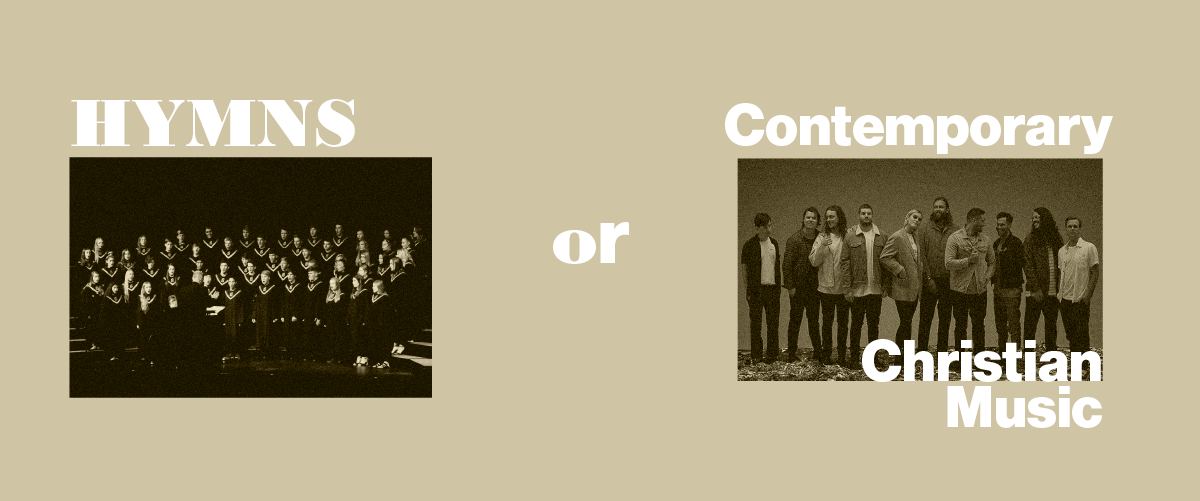
hymn
/hɪm/
noun
- a religious song or poem of praise to God or a god.
- a type of song, usually religious, specifically written for the purpose of adoration or prayer and typically addressed to a deity or deities, or to a prominent figure or personification. The word hymn derives from Greek ὕμνος (hymnos), which means “a song of praise”.
Based on these rather robust definitions, all songs of praise to God – regardless of their composition style – are hymns.
Like my oga at the top would say, that’s all. Thanks for coming to my Theodore Lecture.
Okay, I’m not allowed to write less than 100 words so let me expound on my TheoTalk.
Christian Contemporary Music, also known as regular songs or praise and worship music can be defined as ‘a genre of modern popular music which is lyrically focused on matters concerned with the Christian faith.’ Contemporary means ‘belonging to or occurring in the present.’ This would mean at some point in history, what we now know as traditional hymns were once classified as contemporary music. Interesting, no?
Well, those of us that are vehemently anti-‘hymns’, understand hymns to be an archaic method of singing praise songs to God. Hymns are relegated to old fashioned, super-conservative (read: legalistic) Christians who yearn for the “good ol’ days” and refuse to get with the times. Hymns are dated – in melody, wording and vibe – making them terribly difficult to connect with and/or meditate on. For these people, they believe hymners do not seek out an emotional connection with God, they thrive off biblical knowledge solely.
The rest of us that have vowed to never recognise Contemporary Christian Music (CCM) as solid songs of praise to God, essentially believe that CCM lacks robust and sound theology; that they replace clear gospel truths with moralistic and wispy words. They lean heavily on contemporary (secular) music styles, going as far as taking popular secular songs and christianizing them. For these people, they believe CCMers aren’t on a journey of spiritual growth, they only want what they can feel and what makes them feel good.
It is a what’s-good-for-the-puritans-is-the-only-thing-that’ll-do-in-this-age-of-religious-licentiousness versus puritans-ain’t-all-they’re-cracked-up-to-be-so-how-’bout-we-give-them-and-their-BORING-dated-stoic-music-a-restshowdown.
Whilst both sides may have valid criticisms, this debate is really about preference. Preference oftentimes masked as a meat/milk or legalism/grace issue.
Not every hymn is hard to relate to, neither is every hymn theologically sound and robust. Not every contemporary Christian song is wispy drivel neither is it always heavily influenced by just any musical tide.
Whilst discussing the problematic theology prevalent in CCM as a means to dismiss the genre seems to be a rite of passage for every maturing Christian, you would be astounded to learn about the theological vapidity of some very popular and all-time favourite hymns! (no, this isn’t a name and shame session – if you’re interested, do your googles!)
It is also rather naïve to want to do away with the old… simply because it’s old. If we can still appreciate the likes of Shakespeare and quotes from Plato then we ought to put some respect on traditional hymns! These songs tie us to history! They remind us that God is steadfast and we can trust in him. They remind us that life themes remain constant and sure in the Christian faith. Yes, we might have to google some words but the essence of these songs remind us that regardless of the time period, God’s word remains the same! There’s no reinventing the wheel with Christianity!
We can have our preferences but we must be careful not to use them as a criteria for spiritual superiority. Transcending our preferences should be a heart that is willing to examine, experience and seek out songs that hold true to the gospel, albeit old or new! If the sound of a guitar solo or a long organ intro immediately causes you to despair, you might just be a preference snob!
Paul asked the Ephesians to speak to one another with psalms, hymns, and spiritual songs. To sing and make music in their hearts to the Lord. (Eph. 5:19)
It is fair to say the hymns being spoken of then aren’t the hymns being spoken of now, yet both are music made to the Lord. Times, seasons and musical styles will change but God’s word will remain unchanged forever!
Let’s begin to appreciate all the different (read: archaic, musically-bland, sappy, instrumental-heavy, theology buzzwords-laden or urban) musical modes the gospel of Christ comes to us!
I’d like to give a special shout out to bridge songs, the songs that help blend traditional hymns with contemporary sounds. Their purpose shouldn’t be diminished, words that seemed so far removed from us suddenly become more palatable to the ears – enhancing our understanding of God and biblical truths.
To label one style of music inherently theologically superior or spirit-filled, speaks more to your prejudices and sensibilities than it does the actual music style.
Whether it be with a harp or an 808, let our songs of praise and adoration be true to God’s Word.
“Lola [Olukogbon] writes because she can and writes for City Church because they’re family. Navigating her faith in the appropriate context without relegating it to a part of her whole has been her biggest discovery so far! She also writes at www.thelolaexperience.com BUT if you’re interested in more off-the-cuff commentary, she’s on twitter — where all her tweets are uniquely inspired by carbs, Christianity and the city of Stresselence, Lagos. (@UnOfficialLola)”
